Jessica Weinkle, Associate Professor at the University of North Carolina, Wilmington, says the rationale of the media coverage on climate change and its consequences often leaves much to be desired. She cites examples of how natural disasters and extreme weather events have been communicated. Following the news, one might get the impression that the increase in extreme weather events is an undeniable fact. The fact that the damage caused by natural disasters, measured in monetary terms, has increased significantly is often offered as proof of this.
However, Weinkle explains that this is a little misleading. Of course, weather events such as hurricanes or floods caused by heavy precipitation are a major problem for a society experiencing them. However, it is misleading to attribute the associated material losses, which have increased over time, necessarily to climate change. “There’s two separate issues in that. There’s the geophysical event, and then there’s the social impact. And you might measure the social impact by cost,” Weinkle explains. This social impact, or the financial damage associated with these events, which increases over time, is importantly linked to the state of the society as a whole, she says. For example, one would have to examine how many houses are there and how much could their location be potentially affected by a disastrous event. Or how many cars would be damaged by extreme weather conditions? What kind of property is there in those houses and cars that could potentially be destroyed? It is logical that if extreme weather destroys property in, say, the United States, the amount of property destroyed and hence the financial cost of the event would be significantly greater than in a poorer country.
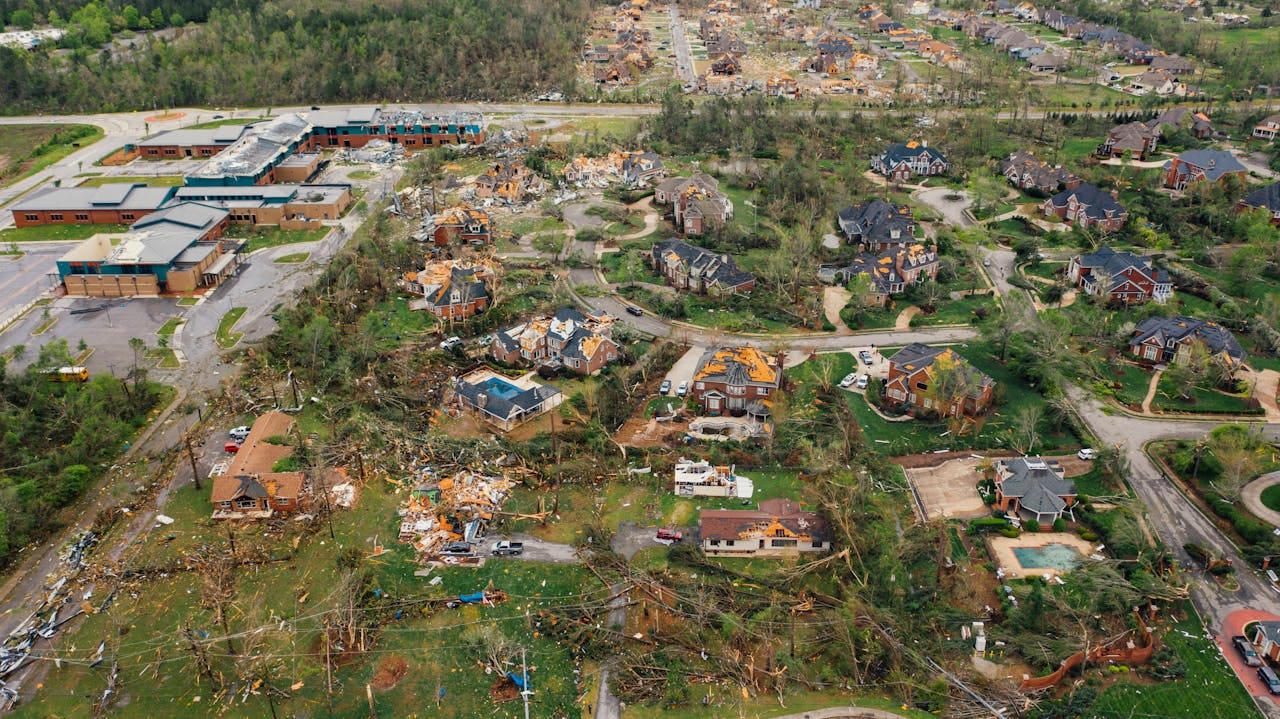
Inflation is another separate issue. If economic losses are increasing nominally over time, this does not automatically mean that the situation in general has gotten any worse, since the depreciation of money or inflation has to be taken into account as well.
Extreme weather events are not on the increase
And if we do take these things into account, can we say that extreme weather events have become more frequent, and more powerful and that the associated losses are increasing? “If you adjust disaster losses or economic losses from these events for changes in inflation over time, changes in population and changes in wealth, the trend is minimised. There’s no trend afterwards,” Weinkle says. In fact, she adds, the Intergovernmental Panel on Climate Change (IPCC) does not detect increasing trends in the types of extreme weather events that are the leading causes of disaster losses. The finding is either an inability to detect trends or the message is so nuanced that it is of little practical meaning for understanding societal experiences with disasters.
But at the same time, Weinkle argues, it doesn’t even matter if climate change is causing slightly more heatwaves in some regions and a bit more rainfall in others. She says that linking problems to climate change does not help to create any practical solutions needed to deal with extreme weather events. She cites the example of wildfires in the U.S. state of California. Because it is hot and dry in California, the risk of wildfires is always high. This is regardless of whether or not climate change has made California a little drier. At the same time, the fact is that forest management in California has been very poor for a long time. “And so now when we have fires, they’re very bad. They’re big. But there are all sorts of reasons for them because of the policy choices that we’ve had in the past,” Weinkle explains. “So climate change makes it perhaps a bit drier, perhaps a bit hotter there. But the fires would be an issue still. They’re not necessarily more of an issue because of the overall warming,” she adds, noting that the same logic can be applied to the analysis of all other extreme weather events.
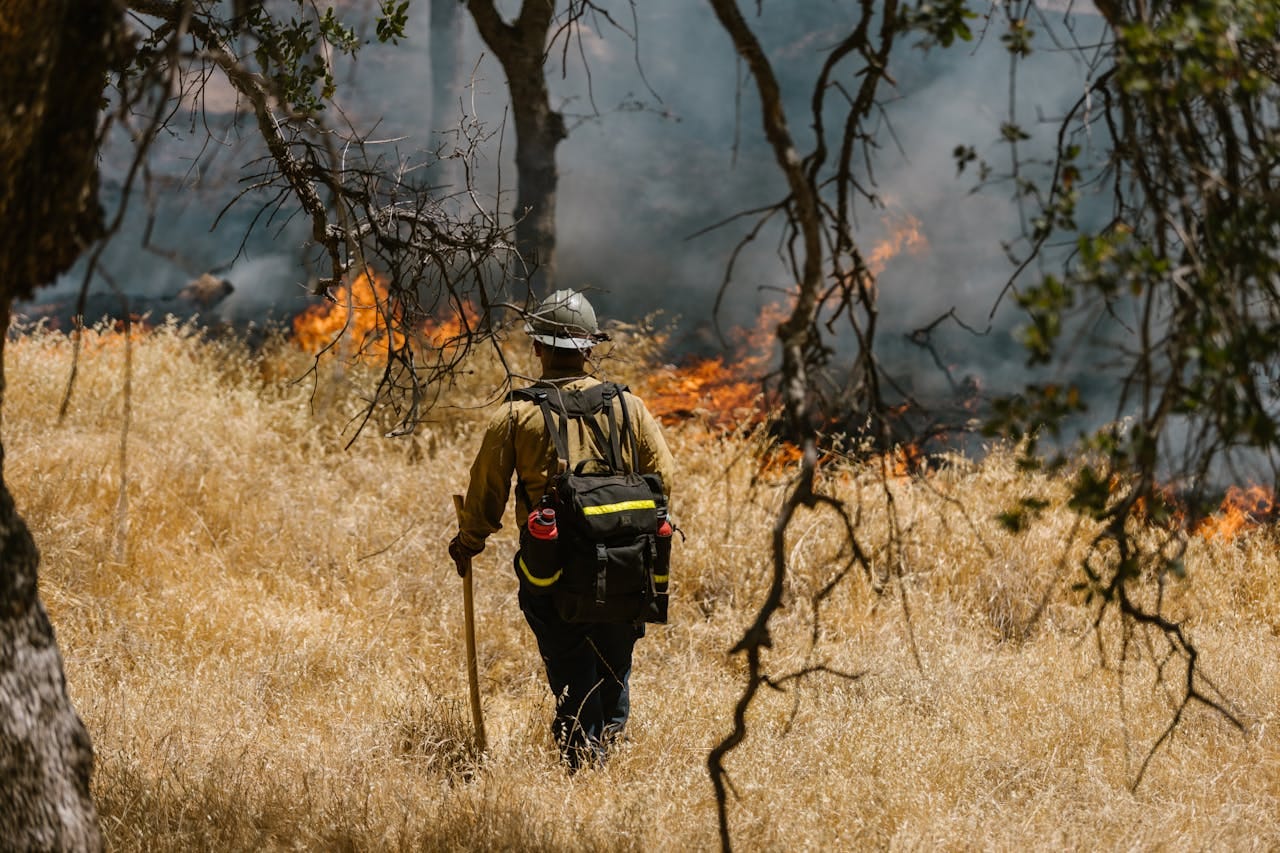
What would probably help best are practical steps, and the wealthier the society is, the easier it would be to take them. If, on the one hand, more wealth means greater potential damage from extreme weather events, on the other hand, it makes society more resilient to extreme weather. “These disaster events are incredibly challenging for individuals, communities and nations that don’t have the wealth to deal with them,” Weinkle says.
Climate science and climate industry
Losses associated with extreme weather events are just one of the topics in which Weinkle, as a scientist, has been interested in and has written extensively about. As an expert, she has also testified before the U.S. Senate on the topics of her research. Weinkle holds a PhD in Environmental Studies and is currently focusing on climate science and policy analysis and mapping conflicts of interest in the field.
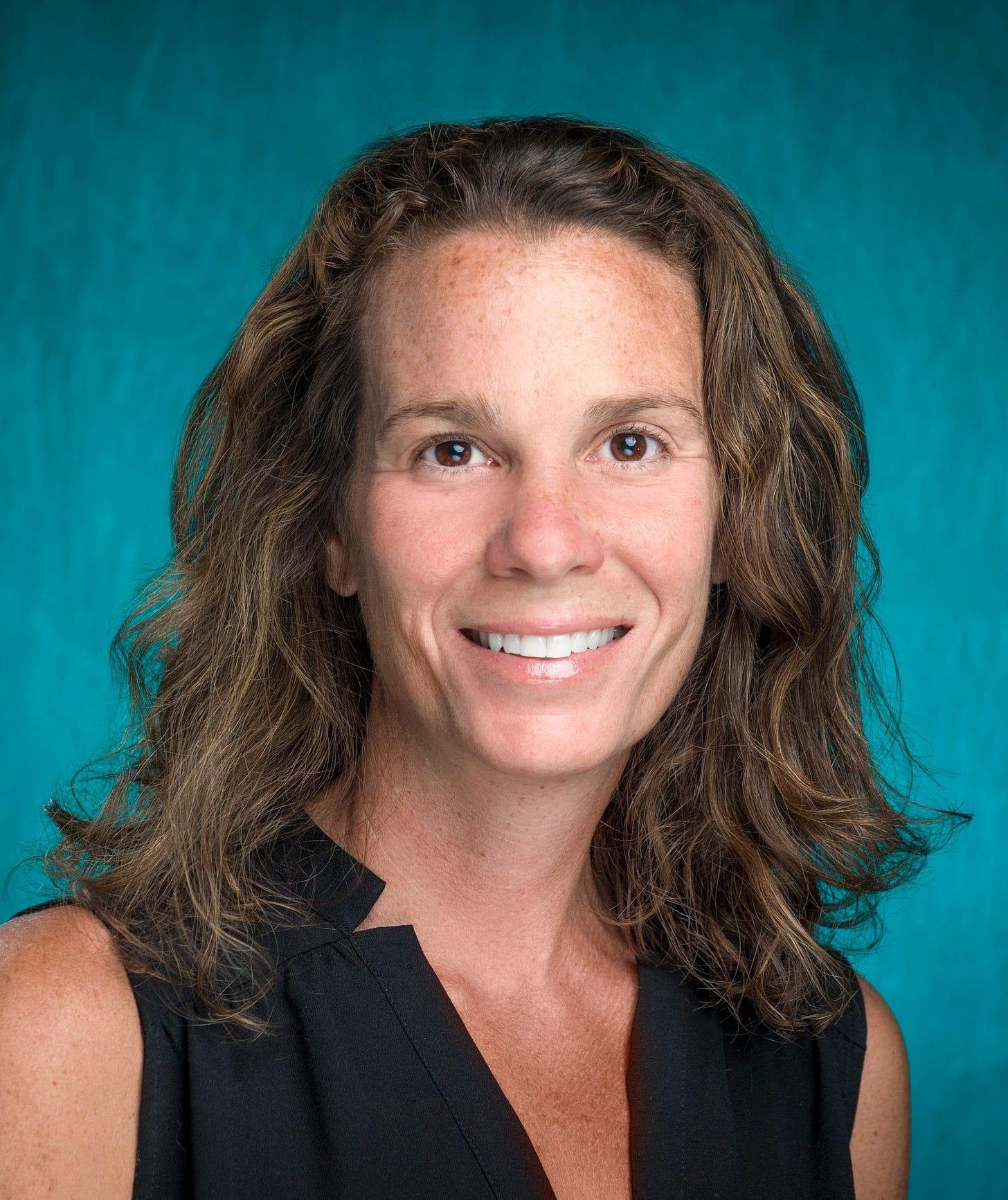
It is on the conflict-of-interest front that Weinkle makes an interesting observation. One of the cornerstones of modern climate science, she says, is the “emission scenarios”, or models, that the IPCC uses as a basis for calculating the increase in the greenhouse effect and the future temperature rises. “There’s been a lot of controversy about those emissions scenarios. Not only in the extent to which they constrain the way that we understand the future, but in some of them, and the most prominent ones, being incredibly implausible, misleading,” Weinkle says.
So, according to her, the most unlikely scenarios should be discarded, but they are not. And one of the reasons they are still run is that there are commercial interests behind the retention of these models. “There is a lot of business that’s been set up on these emissions scenarios. And they work with the financial industry,” Weinkle says. She is talking about analytical firms that offer their services in assessing climate change risks. Initially used by insurance companies, these climate risk analyses based on misleading scenarios are now being sold much more widely, particularly to the financial sector. This has led to a situation where these misleading emission scenarios are already being relied on by basically the entire financial system, from central banks and insurance companies to real estate lenders who are governing mortgages. “That’s a lot of weight on the IPCC to hold on to those conceptions, because it’s holding up this entire industry that has engaged itself with the financial structures, financial institutions of the world,” Weinkle comments. “Because you have a lot of people that are deeply embedded within the IPCC, also consulting with financially oriented groups, and because the IPCC work has become embedded within and as a legitimacy for this climate analytics industry, it’s a lot of pressure to keep things the way that they are, to keep the narrative the way that it is,” Weinkle adds.
Trapped in climate anxiety
One issue that Weinkle has also analysed is the emergence of climate anxiety, particularly among young people. It is worth pointing out that for some interest groups – such as climate activists or renewable energy developers and their associated lobbyists – the widespread dissemination of messages about climate catastrophe is useful for promoting their interests and making profits.
The emergence of climate anxiety among young people is probably an inevitable consequence of our current media environment. When the media constantly talks about natural disasters and says that they are the result of man-made climate change, it is to be expected that there will be anxiety and even guilt among the population. Or even blame put on the older generation for making the wrong choices in the past. It is also understandable that this anxiety is fuelled further when prominent political figures use particularly colourful imagery to talk about climate catastrophe. For example, UN Secretary-General António Guterres recently declared that humanity is on the highway “to climate hell”.
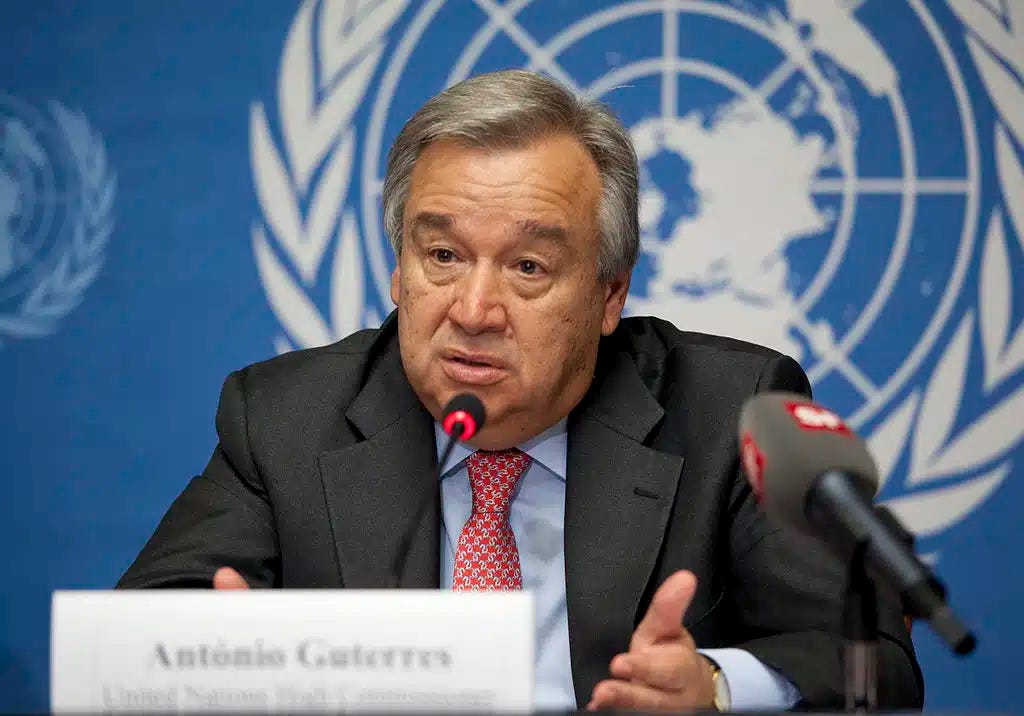
One of the possible consequences of such messaging and this kind of framing of the whole climate issue is the traumatisation of younger people in particular. “They’re told that they are experiencing climate change through the disasters which are traumatic. Now it’s like a cascade of trauma that’s being lumped up under climate change,” Weinkle notes.
While for some people at least, climate anxiety is a logical outcome of such an environment, something else is happening as well, Weinkle says. “If you’re anxious about it, you should become more advocacy-oriented. And so it’s kind of like breeding advocacy, it’s breeding advocates,” she says, adding that she doesn’t think it’s very fair to these young activists. The point is that young people are genuinely concerned about what they see or read in the media. For example, they are surfing on their phones and are told that climate change is to blame for extreme weather conditions when in reality there is no such direct causal connection. Or they are told that we should quickly abandon fossil fuels and use only wind and solar power to save the planet, but the problems with this choice – e.g. that such electricity can only be guaranteed when the conditions are right, i.e., when the wind blows or the sun shines – are not explained to them at all. “None of them really want to see the lights turned off, right? They need their electricity, so they need to be engaged in a more pragmatic discussion about energy and how nations need energy and you need energy, and how are we going to have this cheap energy to keep you plugged in while also addressing the other problems that you’re concerned about,” Weinkle says.
In conclusion, Weinkle’s message here is that, be it energy policies, urban planning, reactions to extreme weather or something else, the approach should always be a practical one, aiming to solve the problem rather than succumbing to emotions. All in all, it does not matter whether you experience a great storm because of climate change or something else. What matters is how you can cope with it and what kind of resources you have at your disposal.
First published by Freedom Research. Subscribe here.
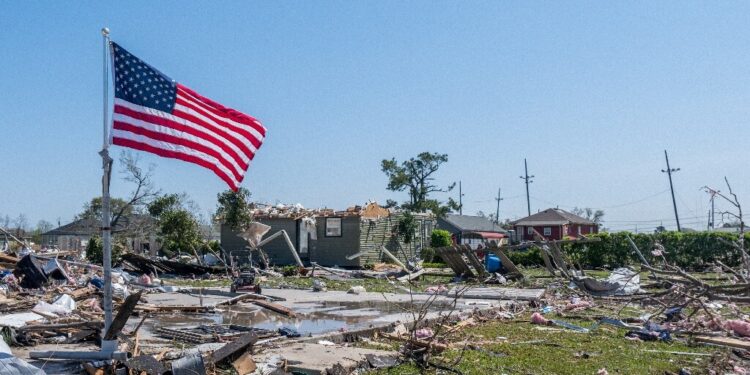












To join in with the discussion please make a donation to The Daily Sceptic.
Profanity and abuse will be removed and may lead to a permanent ban.
It’s becoming laughable at this point. If a news article talks about a violent attack, or about assault and rape, or about sexually abusing minors and you don’t see the name or photo of the criminal responsible for it, you can already assume his immigration status, and you’d be right 90% of the time. Terrorists are screaming out why they’re doing all these attacks, but the media is deaf. But get 10 people together that are displeased with how the government runs things and the media won’t shut up about “far right” and “white supremacy”.
How delusional do you have to be to trust the media these days?
Why can’t we just accede to his desire for martyrdom?
This one’s doing the rounds, in case you didn’t see it. I honestly thought it was AI-generated, but apparently it’s legit. The contrast with the backdrop is just seriously peculiar…How many were in attendance, I wonder?
https://twitter.com/WayneGb88/status/1755302991760937255
Absolutely grotesque.
Plod excelling at F. A.
Yes, agreed. That’s how my mind works now too. A bit like if somebody dies suddenly and unexpectedly, especially decades before the end of their expected lifespan, I always assume it’s the death jab until proven otherwise.
And I note that Afghan alkali attacker in Clapham still hasn’t been found. For somebody who’s reportedly got ”significant facial injuries”, in a city that has masses of surveillance cameras, it’s surely safe to assume he’s being helped and kept hidden by somebody he knows. Well, either that or he’s walking around freely, identifying as a Muslim woman, complete with burka and niqab.
Here’s another depressing travesty of justice. Another non-accidental ‘error’ by the Home Office ( as if we were born yesterday! ) to add to the extensive list. But I’m sure he’s seen the error of his ways and is now a totally reformed character, so that’s okay then;
”A terrorist who murdered three people was allowed to stay in the country after a series of “woeful” Home Office errors.
Khairi Saadallah murdered James Furlong, 36, Joseph Ritchie-Bennett, 39, and David Wails, 49, in Forbury Gardens, Reading, on Saturday June 20, 2020.
Now, an inquest has heard how Saadallah had wrongly been granted five years’ humanitarian leave to remain by the Home Office.
The department made a series of “woeful” errors in handling the case, which included allowing him to stay in the country even though he had served five prison sentences for violent offences.
The inquest was told that the Home Office had no record of Saadallah’s arrival in Britain on a multiple-entry tourist visa with his father in March 2012 and again in September 2012, reports The Times.
The department also had no record of his failure to depart by the visa expiry date on September 28 before he claimed asylum on October 16.
Six years later, Saadallah was still in the country. This is despite exhausting all his appeals, after launching a new legal challenge to his deportation.
He argued that Libya had become unsafe in the meantime due to a new round of conflict in the country. He was eventually granted five years’ leave to remain on a humanitarian protection basis and withdrew his legal appeal.”
https://www.gbnews.com/news/reading-terrorist-khairi-saadallah-home-office-failings
I do not blame the trash that are coming here. I do however blame the trash that brought the trash here. —-Government. hand wringing parasite globalists that will facilitate our cultural destruction so they can get a little gold star on their lapel from the One World Government people at the UN and WEF
When the mistakes always go one way, maybe they’re not mistakes.
Or they only turn into mistakes when they happen to become public.
I remember that (I was in the Forbury earlier that day and the police blocked all of the area for days). But this wasn’t a run-of-the-mill islamist terror attack. The victims were all gay and I strongly suspect this was someone having seriously violent second thoughts about “experiences he had shared with them”, ie, that the motivation was rather personal than religious. That’s obviously not an excuse. But still a different kind of murderous delusion.
Self hating projection.
Jealousy would be another conjecture. Or some drug-fuelled tete-a-tete somebody really didn’t want to remember when he became sober again. As far as I can recall, nothing about the motive for the murder was ever published. This happened on a sunny day right in the center of a popular public park which suggests that it was rather a targetted than a random attack.
We’re already being set up for the Afghan chemical attacker being declared to have “mental health problems” as justification for his murderous attack.
A fellow Afghan appeared on the news pleading for the Afghan community not to assist him because he “needs medical attention and may have mental health issues.”
I knew people could sleepwalk but I never knew a whole continent could. ——-But in the last 20 years or so I have realised that Europe is SLEEPWALKING
How perfectly horrendous everything is: these obviously terrorist Muslim attacks, the cancer epidemic (as in Dr Dalgliesh’s article), the wars. All extremely depressing but only to be expected in the spiritual war we are in, essentially waged against us by the devil. We need to (re)turn to God.
I don’t really agree with this statement. But it’s certainly a lot better than many others. Defeatism always ends in defeat.
I don’t mean to sound defeatist – sorry! I resist at every opportunity: masks, lockdowns, jabs, and now in our area, Lower Traffic Neighbourhoods – a couple of other guys and I, all in our 70s or more, are standing at the very badly signed barriers warning motorists of the fines they can expect if they drive thorugh). We do what we can! And fight on!
You didn’t. That was the part of the statement I liked — it offered a positive perspective instead of the more common “We are doomed!” mongering. I’ve been raised by pretty religious parents and used to call myself a Christian during most of my lifetime. I’ve started to reconsider that due to too many bad experiences with organised (protestant) churches.
So I expect you disagreed with what I said about returning to God? I’m sorry you have had bad experiences with churches. We were blessed with ours, which although it closed initially during lockdowns did manage to stay open in one way by having ‘support groups’ where we all had lunch together, pray together, etc. And now we have a large percentage (of a very small church) who are on board with everything and still tolerate those in the church who aren’t on board (as they tolerate us in spite of disagreeing with us). I hope and pray that should there be another lockdown or other measures, we’d stay open. There’s no perfect church because there’s no perfect human being (Jesus being the only one!).